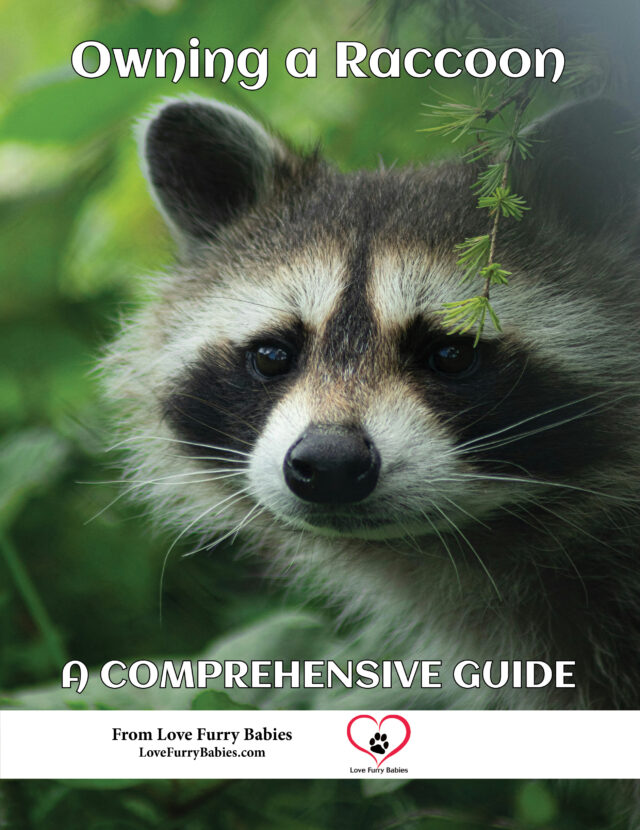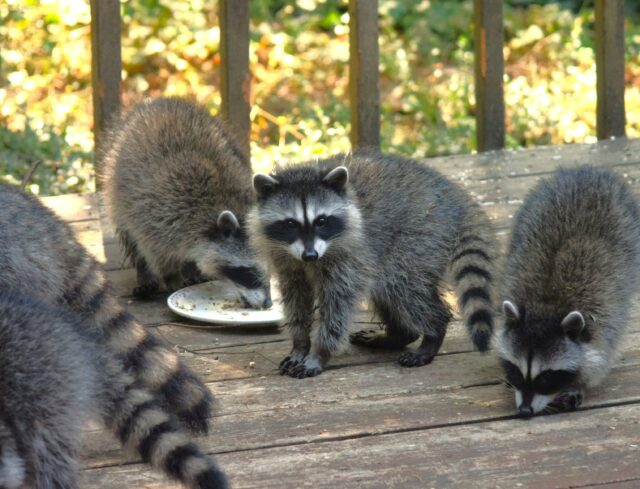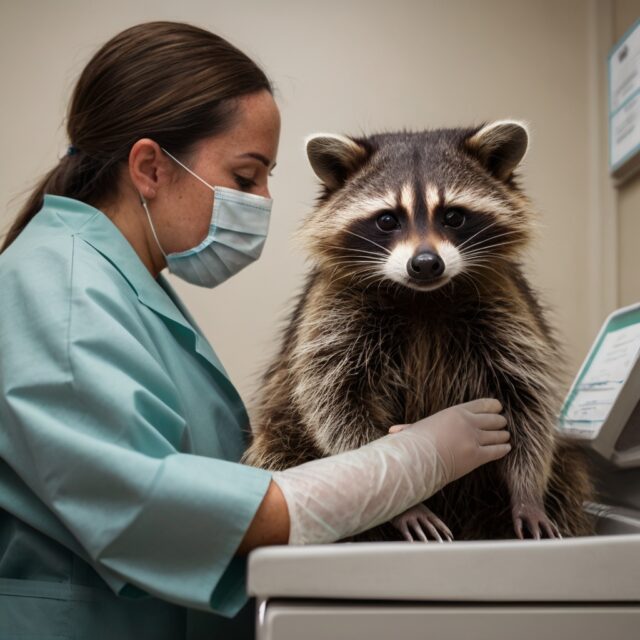🦝 Owning A Raccoon Can Be A Unique And Rewarding Experience!🐾

These intelligent and curious creatures offer endless entertainment and companionship, but they also bring a set of challenges. This guide aims to provide a comprehensive overview of raccoon ownership, covering everything from understanding their behavior to meeting their dietary needs.
Why Own a Raccoon?
Raccoons are known for their distinctive personalities and intelligence. They can learn to perform various tricks and tasks, making them engaging companions. However, it’s crucial to remember that raccoons retain many of their wild instincts. This guide will help you balance their natural behavior with domestic living.
The Commitment of Raccoon Ownership
Raccoons can live up to 20 years in captivity, so owning one is a long-term commitment. They require significant time, effort, and resources, including a suitable environment, balanced diet, regular veterinary care, and ample opportunities for enrichment and socialization.
Understanding Raccoon Behavior and Habitat
Raccoons are medium-sized mammals native to North America, known for their black “mask” and ringed tail. They are highly adaptable and intelligent, capable of solving complex problems. In the wild, they are nocturnal and are skilled climbers and swimmers. Understanding these behaviors is crucial for providing appropriate care in a domestic setting.
Legal Considerations for Owning a Raccoon 
Before deciding to own a raccoon, it’s essential to understand the legal implications. Laws regarding raccoon ownership vary widely depending on location. Some areas require specific permits or licenses, while others may prohibit raccoon ownership altogether. Contact your local wildlife agency to get accurate information and ensure compliance with all regulations.
Preparing Your Home for a Raccoon
Creating a safe and stimulating environment is key to a raccoon’s well-being. Indoors, this means providing ample space, climbing structures, and interactive toys. Outdoors, secure enclosures with shelters, climbing platforms, and foraging opportunities mimic their natural habitat and keep them mentally and physically stimulated.
Diet and Nutrition for Raccoons
Raccoons are omnivores, requiring a diet that includes proteins, fruits, vegetables, grains, and nuts. Offer lean meats like chicken and fish, along with fruits such as apples and berries. Avoid toxic foods like grapes, raisins, and chocolate. Providing a balanced diet is vital for their health and longevity.
Health and Veterinary Care
Ensuring your raccoon receives proper health care is crucial. Regular veterinary check-ups, vaccinations, and preventive measures for parasites are necessary. Common health issues include obesity, dental problems, and respiratory infections. Maintaining a balanced diet and regular exercise helps prevent many health problems.
Training and Socialization
Raccoons are intelligent and curious, making training both challenging and rewarding. Positive reinforcement techniques work best, focusing on commands like “sit” and “stay.” Early socialization helps raccoons feel comfortable around humans and other pets, reducing fear-based aggression and anxiety.
Enrichment and Toys for Raccoons
Raccoons require mental and physical stimulation to prevent boredom and destructive behavior. Puzzle toys, foraging activities, climbing structures, and chew toys cater to their natural instincts for exploration and problem-solving. Rotating toys regularly maintains their interest and engagement.
Safety Tips for Raccoon Owners
Raccoons are curious and can easily get into trouble. Raccoon-proof your home by securing cabinets, electrical cords, and trash bins. Outdoor enclosures should be secure to prevent escapes and protect against predators. Always provide supervision during outdoor activities.
Common Challenges and Solutions
Destructive behavior, health issues, and aggression are common challenges in raccoon ownership. Providing appropriate outlets for natural behaviors, ensuring a balanced diet, and implementing consistent training can mitigate many of these challenges. Patience and understanding are key to building a harmonious relationship with your raccoon.
Frequently Asked Questions
- Is it legal to own a raccoon? The legality varies by location. Always check local laws and obtain necessary permits.
- What does it cost to care for a raccoon? Costs include enclosure setup, food, veterinary care, and enrichment. Expect to spend several hundred to a few thousand dollars annually.
- What should I feed my raccoon? A balanced diet of proteins, fruits, vegetables, and occasional supplements is essential. Avoid processed foods and items toxic to raccoons.
- How do I train a raccoon? Use positive reinforcement and consistency. Start with basic commands and gradually introduce new behaviors.
Conclusion
Owning a raccoon requires dedication, understanding, and a willingness to meet their unique needs. With proper care, raccoons can make fascinating and rewarding companions. This guide provides the essential information to ensure your raccoon lives a happy and healthy life.🐾



